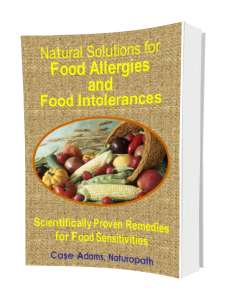Cow’s Milk Increases Risk of Infant Allergies
Researchers have determined that drinking pasteurized, homogenized cow’s milk while breastfeeding significantly increases the chances of the infant becoming allergic.
In this article
Research follows mothers and their infants
Medical researchers from Bangkok’s Mahidol University tested and followed 62 mothers and their infants through four months of age.
Each of the mothers had some form of allergy. The researchers randomly split the mothers into two groups. One group withdrew from drinking cow’s milk during breastfeeding and the other did not. Both groups exclusively breastfed their infants through four months of age.
The researchers tested the infants for allergies at seven days old, one month old and four months of age. By the age of four months, 8 of the babies from milk drinking mothers had skin allergies while only two of the infants from mothers who withheld milk had skin allergies by four months of age.
Skin allergies and cow’s milk
In other words, the risk of having skin allergies may quadruple if the mother drinks pasteurized, homogenized cow’s milk during breastfeeding. The caveat of course is that the population of mothers were all allergic.
But for mothers who are not allergic, there is still an increased risk of allergies among their children. This has been shown in earlier studies.
Milk allergies linked to ENT conditions
Then there are the conditions related to becoming allergic to cow’s milk.
Researchers from the University of Arkansas Medical School and Children’s Hospital studied cow’s milk and ENT conditions. They found that childhood allergies to milk are related to various ear, nose and throat infections and conditions among young children.
The researchers conducted a two-year study that followed 191 children with allergies to cow’s milk. Among the group, 141 children suffered from ear, nose or throat infections.
Among this group, 101 children were able to finish the study, which followed the children after milk products had been withdrawn from their diets. The researchers found that after two years, ninety-one percent had significantly reduced rates of ENT infections.
Of the ENT-milk allergic group, 72% suffered from airway congestion (wheezing), 36% suffered from eosinophilic esophagitis, and 80% suffered from throat infections. 27% also suffered from gastroesophageal reflux. Sixty percent of all ENT disorders were improved from the elimination diet.
Other studies have linked milk allergies to asthma, skin rashes and other conditions.
Other studies confirm findings
For example, a study of Memorial University of Newfoundland investigated 97 healthy mothers who breastfed their babies and 124 mothers who did not. Of the breastfed mothers, 49 had a restricted diet which excluded milk and other dairy products, as well as eggs, fish, soybeans and peanuts during their breastfeeding. The rest of the breastfeeding mothers did not have a restricted diet.
After 18 months the researchers tested the infants and found that 21 of the 48 infants of mothers who did not eat a restricted diet suffered from eczema while only 11 of 49 infants from the diet-restricted mothers suffered from eczema.
It should also be noted that the breastfed infants overall had a lower risk of eczema.
We can thus conclude this higher risk, not just from these two studies but from others that have illustrated the increased allergy risk offered by cow’s milk during pregnancy.
REFERENCES:
Jirapinyo P, Densupsoontorn N, Kangwanpornsiri C, Limlikhit T. Lower prevalence of atopic dermatitis in breast-fed infants whose allergic mothers restrict dairy products. J Med Assoc Thai. 2013 Feb;96(2):192-5.
Chandra RK, Puri S, Hamed A. Influence of maternal diet during lactation and use of formula and use of formula feeds on development of atopic eczema in high risk infants. BMJ. 1989 Jul 22;299(6693):228-30.
Paddack A, Gibbons T, Smith C, Patil S, Richter GT. Food Hypersensitivity and Otolaryngologic Conditions in Young Children. Otolaryngol Head Neck Surg. 2012 Mar 23.
















